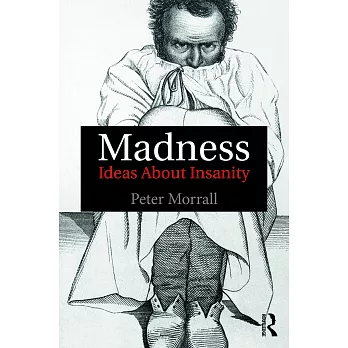This book is an introduction to the uncertainties and incongruities about madness. It is aimed at all of those who are curious about this subject whether out of general inquisitiveness or because it is part of a formal course of study.
Using case studies of real people in order to explain, humanise, and bring to life the subject, Peter Morrall critically analyses how madness has been and is understood, or perhaps misunderstood. By contrasting past and present people who have been perceived as mad and/or perceive themselves as mad, Morrall presents core ideas about madness and critiques their would-be robustness in explaining the specific madness of the person in question, as well as their general relevance to madness overall.
Unlike many of its contemporaries, the book does not adhere to a perspective,
but rather remains skeptical about the ideas of all who profess to understand
madness, whether these emanate from sociology, psychology, psychotherapy,
anthropology, ''anti'' psychiatry, or the biological sciences of contemporary
''scientific-psychiatry''.
This book will inform and stimulate the thinking of the reader, and challenge those with preconceived ideas about madness.



 天天爆殺
天天爆殺  今日66折
今日66折 

























 博客來
博客來 博客來
博客來 博客來
博客來 博客來
博客來 博客來
博客來